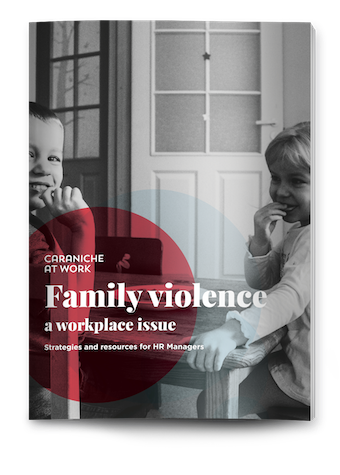
Many of the new tech based EAPs have been making inaccurate claims about traditional EAPs as part of their marketing and promotion. To address this, the peak body for EAPs, the Employee Assistance Professional Association of Australasia (EAPAA) conducted a study reviewing the services and client data patterns of 19 Employee Assistance Program (EAP) providers across Australia and New Zealand. This study aimed to debunk a range of “myths” being promoted by tech based “Imposter EAPs”.
Caraniche at Work are proud members of EAPAA and have more than 25 years of experience providing workplace support across a vast range of customer organisations. Our evidence-based service model is constantly evolving to meet the changing needs of our customers and to deliver positive outcomes for employees and employers alike. While we harness the value of technology to reach and engage our clients, we believe in client choice and human connection.
To support you to understand the EAP landscape we have summarised some of the key myths addressed in EAPAA’s recent research.
Reality: These results are inflated because they not comparing the same things. Traditional EAPs count meaningful interactions, Techno EAPs include a broad range of online activities e.g. online prevention self-care / self-guided services, chatbot texting, and online support groups.
Reality: Data from EAPs in Australia and New Zealand in 2023 reflects that on average 84% of clients resolved their issue.
Reality: Most EAP providers have strict compliance standards regarding counsellor qualifications and registration status. At Caraniche at Work, all counsellors are registered Psychologists, Social Workers or Counsellors.
Reality: The 2023 EAPAA survey found that the average wait time to get a first session of counselling was 1.3 days for telehealth counselling and 4.5 days for in-person counselling. Most EAPs offer both options to give clients choice.
Reality: Most EAPs provide reporting. Caraniche at Work provides monthly and/or quarterly reports or reporting dashboards and we meet with our customer organisations to share insights from the data and explore ways to continually improve our services.
Reality: The 2023 EAPAA survey found that 92% of customers were satisfied with their full service EAP provider which includes specialist services such as critical incident response, mediation, coaching, crisis support and training.
For more detail on this research, including more myth busting, please refer to the full report and associated webinar: ‘Debunking marketing myths about Employee Assistance Programs in Australia and New Zealand’ prepared by EAPAA. (link: https://eapaa.org.au/site/for-providers/debunking-marketing-myths-about-employee-assistance-programs/)

Many of the new tech based EAPs have been making inaccurate claims about traditional EAPs as part of their marketing and promotion.
Read more
Moral injury in the workplace can negatively impact our psychological wellbeing and mental health. Here’s why it matters.
Read more
When choosing how to cultivate wellness in the workplace, it’s never been more important to take an organisation-wide approach. Here’s why.
Read more
Australian workplaces are waking up to the impact of family violence. Caraniche at Work has developed a free report for HR Managers who want to take the lead.